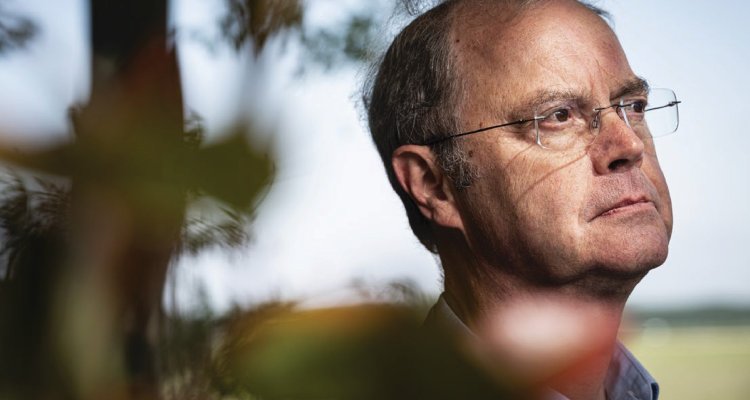
News
Leaving WUR a bequest: 'Scientific research helps the world make progress'
What motivates people to donate to WUR? ‘Wageningen sees the importance of fundamental research, which I firmly believe in myself,’ says Ton van der Heijden, who is leaving a large proportion of his estate to University Fund Wageningen.
‘I always thought I would leave part of my estate to a cause,’ says Ton van der Heijden. ‘But then something scientific, because I feel that’s what helps the world make progress.’ He wants to leave a considerable part of his estate at least to WUR, and his sister is considering the same idea. ‘Neither of us have children, nor do we have any immediate family members still living.’ Van der Heijden studied physics for several years, followed by a long and successful career in ICT. ‘I have always had broad interests. I live in the countryside and I’m interested in biology, ecology and sustainability. I have bookcases full of books about these subjects.’
Remarkably, Van der Heijden is not an alumnus. But he did know that Wageningen does a lot of research in the areas of his interest. ‘I had never been here before, so my sister and I planned a holiday in Wageningen. Then, later on, we spent a day on the campus at the invitation of University Fund Wageningen.’ The Van der Heijden siblings were given a guided tour and several talks on topics of their choice. ‘I let them know in advance which topics we were interested in, such as non-toxic crop protection, biodegradable plastic and the potential for using algae and seaweed for CO2 sequestration, food production and the production of biofuel
and sustainable building materials. In these fields, WUR is a world-class institute.’
It is important to Van der Heijden that the money is used to address the long-term challenges facing the world. ‘Plastic and synthetic materials are going to be a problem for a long time yet, and to me, our future food supply is another important issue, not least in relation to CO2 emissions.’ Another reason WUR appeals to Van der Heijden is that it does not restrict itself to applied research. ‘WUR sees the importance of fundamental research, which is something I firmly believe in myself.’ He has therefore stipulated in his will that some of the money should be used for fundamental research. Meanwhile, Van der Heijden tries to do his bit himself where possible. ‘I have solar panels and I had underfloor heating and a heat pump installed a few years ago. In the garden, I’m replacing paving with things like tree bark as much as possible. My sister thinks sustainability is important too. She suffers quite a lot from flight shame, in fact – which is a bit tricky given that she lives in Spain.’
Donating through a will
University Fund Wageningen is the charity of Wageningen University & Research (WUR). Through this fund, people can contribute to research for a sustainable future, to talent development of students, e.g. through scholarships, or to entrepreneurship. With the support of donors, the fund can realise activities and projects for which no regular funding is available.
Inherited share
Nowadays, more and more people are making wills in which they include one or more charities. One approach in the Netherlands is to designate what is known as an inherited share (this is also called a testamentary disposition). This could mean that you name a fund as one of the beneficiaries alongside any family members, friends and other organizations, thus entitling the fund to a share of the estate. Another option is to leave a legacy. In this case, the will states that, say, University Fund Wageningen will receive a specified amount or a percentage of the estate. A legacy can also be used to leave a beneficiary an asset such as a house, a painting or a share portfolio. It may also stipulate that the legacy should be used for a specific purpose such as research, scholarships or preserving the university’s heritage. For more information on leaving money to WUR in a will, see the Univeristy Fund Wageningen website.